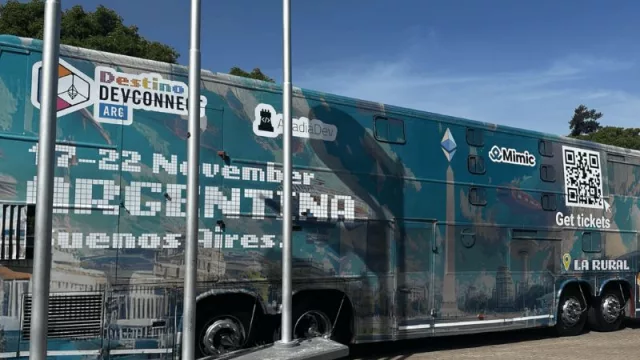Running through November 22, the Buenos Aires edition has brought together over 17,000 attendees from nearly 80 countries, plus a hands-on technical community that doesn’t just watch—it ships. Experts, developers, founders, and regulators share a community-run week of hackathons and themed tracks that showcase what Web3 can deliver to real industries: tourism, real estate, education, health, and public services. Vitalik Buterin, Ethereum’s creator, headlined the opening and pushed a thesis far beyond tickers and memecoins: Ethereum as a “world computer,” architected for a global, decentralized, censorship-resistant internet.
An Ecosystem in Motion: 180+ Sessions Across Eight Thematic Districts
Devconnect week isn’t a string of isolated talks—it's a systems-level experience. With 180+ talks, panels, workshops, and working sessions, the program unfolds across eight thematic districts: AI, Social, DeFi, Layer 2, Privacy, Hardware & Wallets, Collectibles, and Gaming. Fresh content drops daily, democratizing access to high-signal knowledge while opening doors to projects already making real-world dents.
A standout initiative is Devconnect Cowork, an open hub at the Buenos Aires Convention Center where blockchain communities co-work, form ad-hoc teams, and dive into technical sessions on smart contracts, scalability, and decentralized solutions. The agenda also features workshops, regulatory debates, and, of course, hackathons: Tierra de Builders (with ETH Argentina) and ETH Global, offering meaningful prizes and incubation pathways for startups with international scaling potential.
Vitalik’s Vision and Regional Legitimacy
Vitalik Buterin opened the week by underscoring that Ethereum isn’t a speculation machine—it’s infrastructure for a freer, more collaborative world. His message—“Ethereum as accessible technology for all, with decentralized security and no middlemen”—resonates with an Argentina that has integrated blockchain into its financial and tech fabric. He emphasized modular scalability to support mass applications without sacrificing decentralization, and called interoperability across projects critical for sustained ecosystem growth.
Global Presence, Global Learning
The diversity of languages, geographies, and profiles signals a broader trend: crypto is no longer niche. A significant share of attendees arrived from Europe, North America, Asia, and Africa. This inflow isn’t random—Buenos Aires combines local talent, active adoption, and a regulatory posture evolving toward more permissive, experimental models. In that sense, Devconnect operates as a policy testbed for public-sector frameworks, security standards, and governance practices that could inform other markets—including Florida.
Strategic Implications for Miami and Florida
-
Regional innovation bridge: Miami–Spain is already a hub for crypto, fintech, and tech. Devconnect in Buenos Aires creates a collaboration corridor for talent and projects that can be incubated or piloted in South Florida, Spain, and across the U.S. Cultural and language proximity accelerates founder–operator alliances and internationalization.
-
Pilot-ready use cases: real-estate tokenization, crypto payments for retail, decentralized tourism, and smart-contract-based financial services—all prime candidates for Florida pilots, where tourism, real estate, and fintech ecosystems are already robust.
-
Regulation and investment climate: Regulator–investor–builder interactions at Devconnect surface lessons on governance, consumer protection, and supervised experimentation. Florida could benefit from regulatory sandboxes or pilots with appropriate safeguards—attracting capital and top-tier talent.
Core Learnings
-
Scalability and modularity as first principles.
-
Cross-chain interoperability.
-
Measurement frameworks for real-world impact of decentralized applications.
-
Tokenization in real estate and tourism to unlock liquidity and traceability.
-
Crypto payment rails for retail and travel to reduce cross-border friction.
-
Decentralized governance for public-service platforms and infrastructure projects, with incentive design for civic participation.
Micro-Summary: Devconnect BA 2025’s Impact
-
The Buenos Aires edition shows sustained growth and ranks among the year’s most international blockchain convocations.
-
Leadership and vision: Vitalik Buterin emphasized decentralization, interoperability, and scalability as pillars for mass-scale applications without compromising security or censorship resistance. His framing of Ethereum as an open, modular “world computer” sets the north star.
-
Content and structure: 180+ sessions (talks, panels, workshops, working groups), heavy community-led programming, and hackathons. Key spaces include Devconnect Cowork (free/open) at the Buenos Aires Convention Center and the eight thematic districts (AI, Social, DeFi, Layer 2, Privacy, Hardware & Wallets, Collectibles, Gaming).
-
Highlight programs: Devconnect Cowork, policy/regulatory debates, Tierra de Builders (ETH Argentina), ETH Global—featuring prizes and high-density networking for founders and investors.
-
Concrete innovations announced: wallets and crypto-payments for international events, and mini-apps embedded in wallets to deliver seamless crypto UX without technical overhead.
Global Scale, Regional Edge
-
International footprint: exhibitors and attendees from Europe, North America, Asia, and Africa—roughly half the audience from abroad.
-
Hosting Devconnect 2025 reinforces Argentina and the region as blockchain innovation poles, with live cases in finance, digital identity, tokenization, and transversal services.
Relevance for Miami, Florida, Texas, Spain
-
Transatlantic bridges: Miami is already a regional crypto/tech nerve center; Devconnect BA offers a living lab of projects and networks that can translate to Florida—amplifying Miami’s position as a Web3 innovation hub for Spanish-speaking communities and Latin founders.
-
Business opportunities: tokenization, crypto payment rails for retail and tourism, and decentralized applications across real estate, tourism, and fintech can be piloted or cloned in Florida, with access to international users and investor networks.
-
Regulation and human capital: Regulator–ecosystem exchanges can accelerate experimental frameworks and public–private collaboration between Argentina and Florida—boosting talent mobility and investment flows.
Read Smart, Be Smarter!
Infonegocios Miami: a publication written by the Anglolatina business community.
Follow for more analysis: @InfonegociosMiami
https://infonegocios.miami/suscribite-al-newsletter
Contact: [email protected]
Infonegocios NETWORK: 4.5 million Anglo‑Latinos united by a passion for business.
Join us and stay informed.
Infonegocios Miami—Economic, Cultural, and Business Intelligence with a Global Lens
Follow for more analysis: @InfonegociosMiami
© 2025 Infonegocios Miami.












Tu opinión enriquece este artículo: